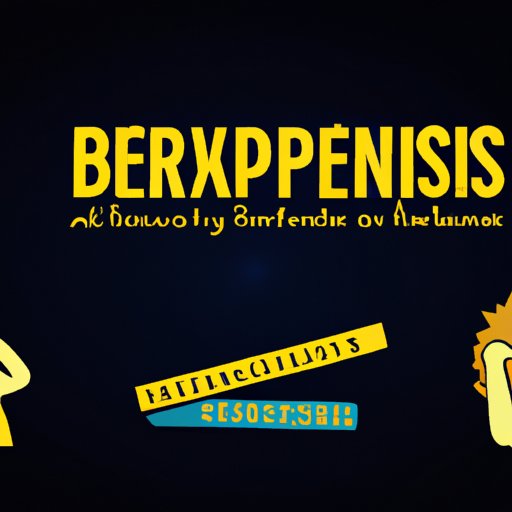
Introduction
Many people have heard the term “mental breakdown” before, but few may really understand what it means. In general, a mental breakdown refers to a period of psychological distress that results in difficulty functioning and a reduced ability to cope with the demands of daily life. Mental breakdowns can vary greatly from person to person, but they often involve a significant shift in one’s emotional, behavioral, and cognitive state.
Given the importance of mental health, it is crucial to understand what a mental breakdown feels like to help those who may be experiencing one. In this article, we aim to explore the experience of a mental breakdown by sharing personal accounts, clinical explanations and self-help tips.
Personal Experience
One of the best ways to understand what a mental breakdown feels like is to hear from those who have experienced one. Personal accounts of mental breakdowns vary widely, but they often share some common themes. For example, individuals may experience intense emotional distress, have difficulty focusing on tasks, or feel disconnected from the world around them.
Sarah, a student, shares that she experienced a mental breakdown after failing an important exam. “I just couldn’t stop crying, I felt so helpless and worthless. I didn’t want to talk to anyone or do anything”. Similarly, John, who felt overwhelmed by work expectations, had difficulty sleeping and experienced feelings of helplessness and inability to concentrate.
Participants also described the physical changes they experienced during a breakdown. For example, they had difficulty sleeping, changes in appetite, weight loss or gain, and increased heart rate.
During a mental breakdown, people may feel like they are losing control, even experiencing dissociative moments. The ability to complete even the simplest activities, such as making dinner, may seem impossible.
While everyone’s experience of a mental breakdown is unique, one common thread is that it can significantly impact daily life, including oftentimes missing school or work responsibilities.
Clinical Explanation
Mental breakdowns may result from an accumulation of stress, unresolved emotional pain, or changes in life circumstances that overload an individual’s coping strategies. They are generally considered a result of mental illnesses, such as depression or anxiety disorder.
Psychiatrists and therapists use the term “mental breakdown” to describe a wide range of mental health challenges, including panic attacks, anxiety disorders, and major depressive episodes. They are characterized by various symptoms such as loss of interest in activities once enjoyed, mood swings, and unpredictable emotional response.
Research has shown that prolonged stress can alter the brain’s chemistry and decrease its ability to manage stress. This might lead to overactivation of the hypothalamus-pituitary-adrenal (HPA) axis, which regulates the levels of the hormone cortisol. Excessive cortisol levels have been linked with anxiety and depression, which predisposes people to a mental breakdown.
Sharing Poems or Writing
Creative writing such as poetry, essays, or short stories can provide an artistic lens through which to view mental breakdowns. It can be therapeutic for individuals to express themselves through writing and help them process the experience, giving them a different perspective on their emotions. The act of writing can also help readers relate to the experience and be more empathetic.
The artist and writer, Sylvia Plath, is known for her writing which delves into her personal experiences of mental health issues. One of her most famous works is “The Bell Jar,” which explores the character’s experiences with depression and treatment. Similarly, modern poets such as Rupi Kaur, Lang Leav, and Warsan Shire have all written poems on mental breakdowns, which have received worldwide recognition.
Expert Interviews
Interviewing psychologists, therapists, or other healthcare professionals can provide more insight and perspective on mental breakdowns. They can share expert opinions on how to identify and cope with a mental breakdown, which can be helpful for those hoping to understand their experiences.
Therapists and psychologists suggest various techniques for managing a mental breakdown, such as mindfulness techniques, breathing exercises, or muscle relaxation. They advise seeking the appropriate help, either through therapy or medication to improve mental health.
Self-Help Tips
Although it’s difficult to stop a mental breakdown from occurring, there are several strategies individuals can use to help prevent or cope with such an experience. These techniques may not work for everyone, but they are worth exploring.
One self-help method that may be helpful is practicing meditation or deep breathing exercises. This can be a useful tool to help calm the mind and release tension. Research has shown that meditation can decrease anxiety and depression symptoms.
Another useful coping strategy is stress management, such as regular exercise, journaling, or spending time in nature that may help individuals to feel more balanced and restore a sense of normality in daily life. Moreover, therapy can be helpful for stress management by learning coping strategies and identifying triggers.
Conclusion
Mental breakdowns are an often-misunderstood phenomenon. They can take a significant toll on an individual’s well-being and require medical intervention to minimize negative impacts. However, seeking help from a mental health professional, practicing stress-management techniques, and incorporating self-care routines can help people prevent or better manage potential symptoms.
It is important to prioritize mental health and educate oneself on the experience to better understand its impacts on people’s lives. Sharing personal experiences and seeking support when going through a difficult period can make a significant difference, both for oneself and for others who may be struggling.




